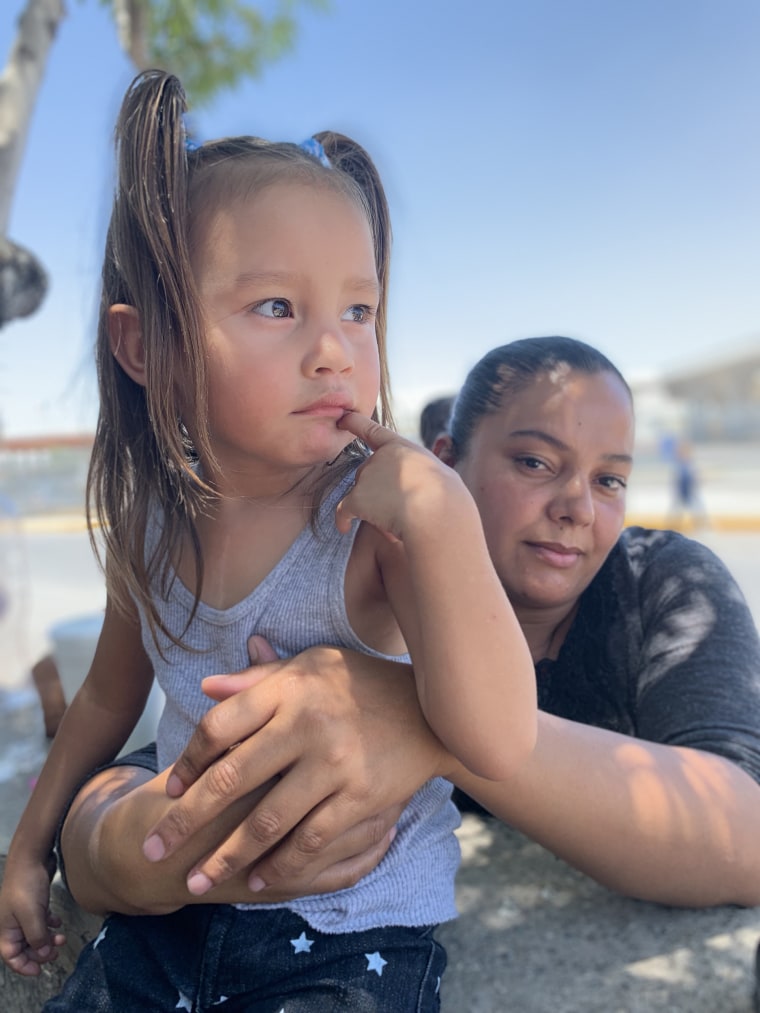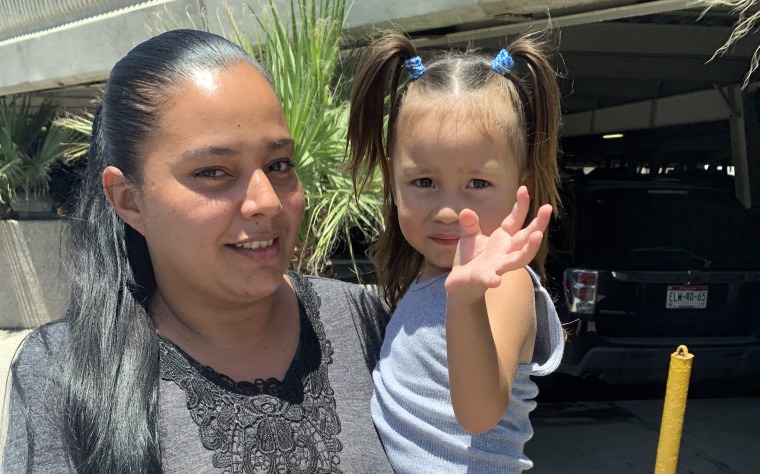JUÁREZ, Mexico — Tania Palma says she crossed the Rio Grande once before and isn’t afraid to do it again.
Palma, 30, fled Honduras after several family members were killed and crossed from Juárez, Mexico, into El Paso, Texas, three months ago with her three young children.
“Here, under a bridge by the river,” she said, pointing to the Laredo International Bridge that connects the two cities.
But after Palma and her children crossed into Texas, U.S. authorities told them they had to go to Mexico to wait for their asylum claim to be processed.
“They didn’t give us a reason," Palma said. "They just said, ‘You are going to Juárez,’ no explanation and ‘sign here.’ And for fear that they may do something to our kids, we signed.”
She’s been waiting in Juárez ever since.
Palma is one of at least 15,079 people who have been sent to Juárez from the United States under the “Remain in Mexico” policy, Mexican officials said last week.
The Trump administration implemented the policy in March, requiring families seeking asylum to stay in Mexico while they await court hearings on their cases in the United States. Administration attorneys have said the policy was put in place to deter “baseless” asylum claims that were “overtaxing” the U.S. immigration system.
A report released Tuesday by Human Rights Watch, an international nongovernmental organization, urged the U.S. government to cease returning asylum-seekers to Mexico, where they are increasingly facing “dangerous and unlivable conditions." The report was based on interviews and court cases in the U.S. and Mexico in May.
"Remain in Mexico," officially known as the Migrant Protection Policy, or MPP, is still one of the only border crackdown efforts imposed by the Trump administration that has not been shut down by the courts.
“We get here, desperate from our country, we’re looking for protection," Palma said. "We leave not because we want to. We leave because it’s a necessity."
"We feel like we’re in jail"
Since their return to Mexico, Palma’s family has been staying at a shelter in Juárez that Palma feels is not safe for her or her family.
A scar from heart surgery on the chest of her youngest daughter, Sophia, 3, constantly reminds Palma of one of her worst fears: not getting good medical care at the shelter if something were to happen to Sophia.

“I ask President Trump to put his hand on his heart,” she said crying, pleading with him to end the "Remain in Mexico" policy.
Palma said that local gangs and mafias have tried to kidnap her children four times. She said she has seen cases where they have taken family members from a shelter and extorted relatives for money.
“Here in Juárez, we feel like we’re in jail," she said. "We don’t go out.”
Clara Long, senior researcher at Human Rights Watch and co-author of the report, said that “U.S. border officials are stranding mothers with small children and other vulnerable migrants in Mexican border cities where their safety and security are at risk.”
The circumstances have pushed parents like Palma over the edge and weighing whether it would be better to remain in a Mexican shelter that feels unsafe or try to cross into the United States again.
“I know we are doing it illegally, but we don’t have another choice,” she said, standing outside the offices of a Mexican state agency that provides services to migrants.
This is the dilemma that relatives say prompted Salvadoran migrant Óscar Alberto Martínez Ramírez to cross the Rio Grande in Matamoros, Mexico, last week. Martínez Ramírez drowned and died alongside his 2-year-old daughter, Valeria, as they attempted to cross safely. Their bodies washed up on the bank of the river, and the powerful photo of the drowned father and his little girl went viral.
“I know it’s a risk to go with kids, but unless you live in our situation, it's better you don’t share your opinion," Palma said. "I am not risking my kids’ life because I want to. If I stay behind, they will kill my children."
FOLLOW NBC LATINO ON FACEBOOK, TWITTER AND INSTAGRAM.

